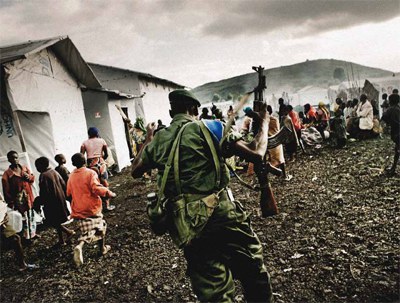
HIV and conflict: Connections and the need for universal access
The interconnections between conflict and HIV are complex. HIV affects the lives of many people caught up in conflict, including the civilian population, protagonists, as well as people whose role it is to provide security during and after conflicts.
In conflict, people may be subjected to mass displacement, human rights abusesincluding sexual violence, and be left in conditions of poverty and powerlessness that might force some individuals to sell sex to survive. In addition, infrastructure may be damaged, and prevention and health services disrupted. Such conditions put populations at increased risk of HIV infection, and women and children are especially vulnerable.
A special supplement on HIV has been published by the journal Forced Migration Review, with support from UNAIDS. This edition is largely based on the work of the AIDS, Security and Conflict Initiative (ASCI), which undertook research over a number of years to gather evidence and advance analysis on the connections between HIV and conflict.
The report emphasizes tailored programmes to ensure universal access to HIV prevention, treatment, care and support to vulnerable groups must become an integral part of national HIV policies and strategies. The analysis addresses how to achieve greater and better access to HIV services for people during and after conflict.
The supplement presents a selection of the ASCI case-studies alongside a number of articles on the subject which were submitted in response to a Forced Migration Review call for articles. UNAIDS and its Cosponsors UNFPA, UNHCR, and several research partners contributed articles. In addition, Dr Nafis Sadik, Special Envoy of the UN Secretary General for HIV/AIDS in Asia and the Pacific, authored a piece on the linkages between forced migration and HIV in Asia. (October 2010)
